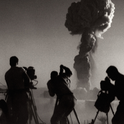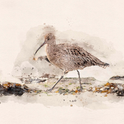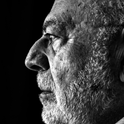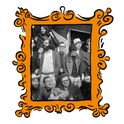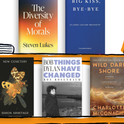Book: Secular Judaism
Author: Yaakov Malkin
Price: (Vallentine Mitchell, ?17.50)
"Secular Jewry knows what it wants," proclaims Yaakov Malkin of Tel Aviv University, "but it has no clear vision of how to get there. Replacing that confusion with clearly defined principles, objectives and methods is its major task." For Malkin, secular Judaism is something more serious than a pick-and-mix lifestyle choice. He sees it as a separate denomination alongside orthodox, reform or conservative Judaism, a way of life which has, or ought to have, serious philosophical underpinnings.
There are many non-religious Jews who accept the Bible as the central source of "Jewish collective memory" but reject any rabbinic monopoly on its interpretation. (This is common in Israel, where the educational system and Hebrew language have always given the Bible a prominent presence in everyone's life.) They want to celebrate the festivals and main life cycle events, but in forms adapted to their values. They want to provide their children with an education which is Jewish without being drenched in religious propaganda. They may want to forge new forms of spirituality. Some would even like to attend secular synagogues.
Jews concerned with these questions are hardly a monolithic unit, but they may well represent the majority of world Jewry; and Malkin addresses their concerns with sound analysis as well as concrete practical suggestions.
He argues, for example, that the idea of pluralism is "a principle that remains unrecognised in some orthodox circles," even though it has done a great deal to benefit "both the volume and variety of Jewish cultural productivity." Furthermore, he believes that democratic pluralism has deep Jewish roots: the Bible offers clear evidence of "the pluralism of the Jewish people in its first thousand years" and "the sages of the Talmud legitimised analysis of ideas by open controversy and decision by majority." So today's secular Jews should be seen as more traditional than the ultra-orthodox in Israel who "fight to raise Halakha [religious law] to priority over democracy and to nullify laws of the state daring to outface those of the Halakhic code."
Malkin's detailed programme of "Jewish humanistic education" includes units on secular Judaism as "a culture that has been developing since the 18th century"; "the common denominator of the various lifestyles of secular Jews"; "beliefs prevalent in secular Judaism" (a very broad church, taken to include "atheism, agnosticism, pantheism and deism"); and "the process leading to the non-observance of Halakhic laws by the majority of Jews." The contents of this syllabus are, understandably, drawn with a pretty broad brush, but they could hardly be more polemical. And that is because Malkin is clearly agitated by the situation in Israel, where "the secular and the orthodox (especially the ultra-orthodox) differ in almost every way imaginable." They are engaged in a culture war and fierce political conflict over issues of educational policy, women's rights, military service, who counts as a Jew - and whether buses should run on Saturdays. This is a war to the bitter end, we read, between "the values of democracy and humanism on the one hand and the mitzvot [laws] of the Halakhic code on the other." Here "compromise is not a possibility because both sides are dealing in absolute values."
This may be slightly melodramatic, but it clearly reflects the reality of life in Israel, where the secular clearly need to create policies, educational programmes and opportunistic alliances if they hope to defend their values. Some of it is much less relevant to the diaspora, where a secular identity can be much more casual and unthinking (particularly in a non-religious country such as Britain). On the whole, however, the specific suggestions about secularising Jewish rites of passage or transforming Passover into "a holiday of spring, freedom and the creation of the Jewish people" are provocative and useful.
Secular Judaism is also marked by some startling outbursts that many Jews will find hard to accept. Kabbalistic mysticism (like meditation), we are informed, is merely a "vehicle for those who want to escape from the real world into fantasy." Malkin makes a good case for treating the Bible as literature - and then gives a single, provocative example of what he means. The God of Genesis, he suggests, should be seen as a great sinner like Dr Faustus, Medea or Richard III who, "with characteristic total shamelessness, forbids Adam and Eve knowledge of morality in order to stop them assuming God-like qualities."
Even the Holocaust is enlisted in Malkin's battle against the religious. Study of the period, he argues, ought to stress that the Nazis not only killed millions of people but destroyed a huge "surge in Jewish energy and vision" brought about by "the secularisation of the late 19th and early 20th centuries, when large numbers of Jews moved from the shtetl into the capitals of Europe." Those who ignore this fact are accused of doing "historical injustice to the victims." This is a pretty low blow, yet revealing of Malkin's deep but unacknowledged emotional investment in the subject. It may reflect something purely personal or a more general malaise experienced by secular activists in Israel. But one wonders why he feels quite so embattled.
